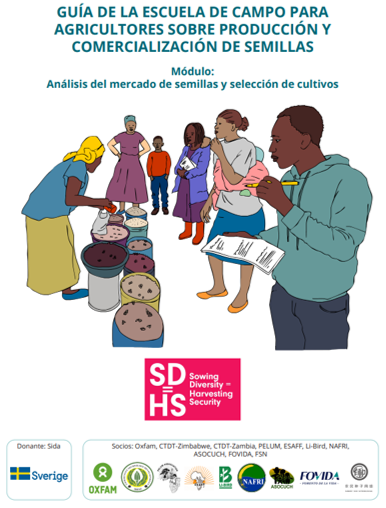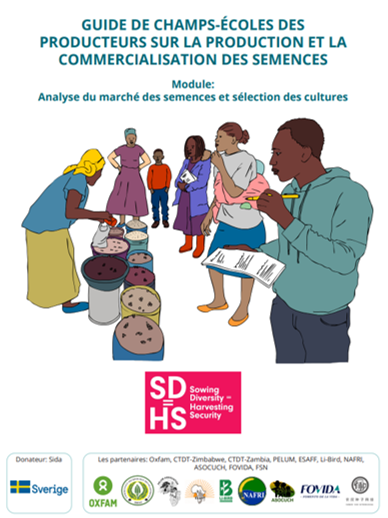“Nearly everyone in Zimbabwe is a farmer and even those in towns still have one or two beds of vegetables on their backyards.”
John Tigere works with Community Technology Development Trust in Zimbabwe (CTDT). His focus is on farming as a family business and as such he works with Farmer Seeds Enterprises to facilitate the commercialization of farmers’ seeds. With over 15 years of experience in the field, John Tigere brings a wealth of knowledge and passion for agriculture in Zimbabwe. As a farmer himself, he understands the issues faced by farmers and is eager to find solutions to these challenges. John describes his drive as very personal and close to heart.
Tigere is one of the seven Sowing Diversity=Harvesting Security representatives who participated in the course Smallholder Engagement in Seed Systems. Developed in a coalition made of Wageningen University & Research, the Norwegian University of Life Sciences, the Production Ecology & Resource Conservation and Oxfam Novib through the Sowing Diversity=Harvesting Security program (SD=HS).
“In Zimbabwe, every household has something to sell, crops or livestock.”
Over the last decade, the focus of farming in Zimbabwe has shifted from growing crops for personal consumption to growing crops for market. Farmers are now more selective in the seeds they choose and aim to grow crops that are marketable. The rise of education and desire to pay for children’s school fees has been part of the drive for this change.
“I believe a seed should be defined as anything that can germinate! In Zimbabwe, seeds are defined as something which is certified. This definition is invented by companies. The laws in place protect big companies, like Syngenta, Seedco, Pioneer, Pana.”
One challenge that quickly arises for farmers trying to sell their seeds are the laws in Zimbabwe. Laws make it difficult for farmers to register their seeds, with very specific conditions that are almost unattainable for many farmers. If a seed is not certified, it is legally not considered a seed. Farmer seeds are recognized as grain. Policies then prohibit farmers to sell non-registered seeds further than a 40-kilometer radius. Thus limiting potential markets for farmers.

“When we go back to Zimbabwe, we want to empower the farmers so that they can lobby for the relaxation of these laws. That is what we take home.”
During the course, John was inspired by the reality in other countries, where the laws are more relaxed. We heard what happened in Uganda and Zambia when they lobbied through their local member of parliament, the laws were finally relaxed. Tigere hopes to reach the recognition of farmer seeds as a legitimate seed source, for them to be allowed to sell their local seeds.
“If you do something alone without exposing it to others you think you are doing it correctly but the moment someone analyzes your work you may realize there are some gaps.”
The CTDT participant was impressed with the mix of bringing real-life cases into the academic space. He believes that presenting these cases provided a different perspective on seed systems, but also a new and thorough analysis by professors and participants. John learned a lot and is certain all other participants did too. Tigere hopes that the academics and graduates participating in the course gained a practical understanding of seed systems and will use the cases as examples when teaching students about seed systems in the future.










